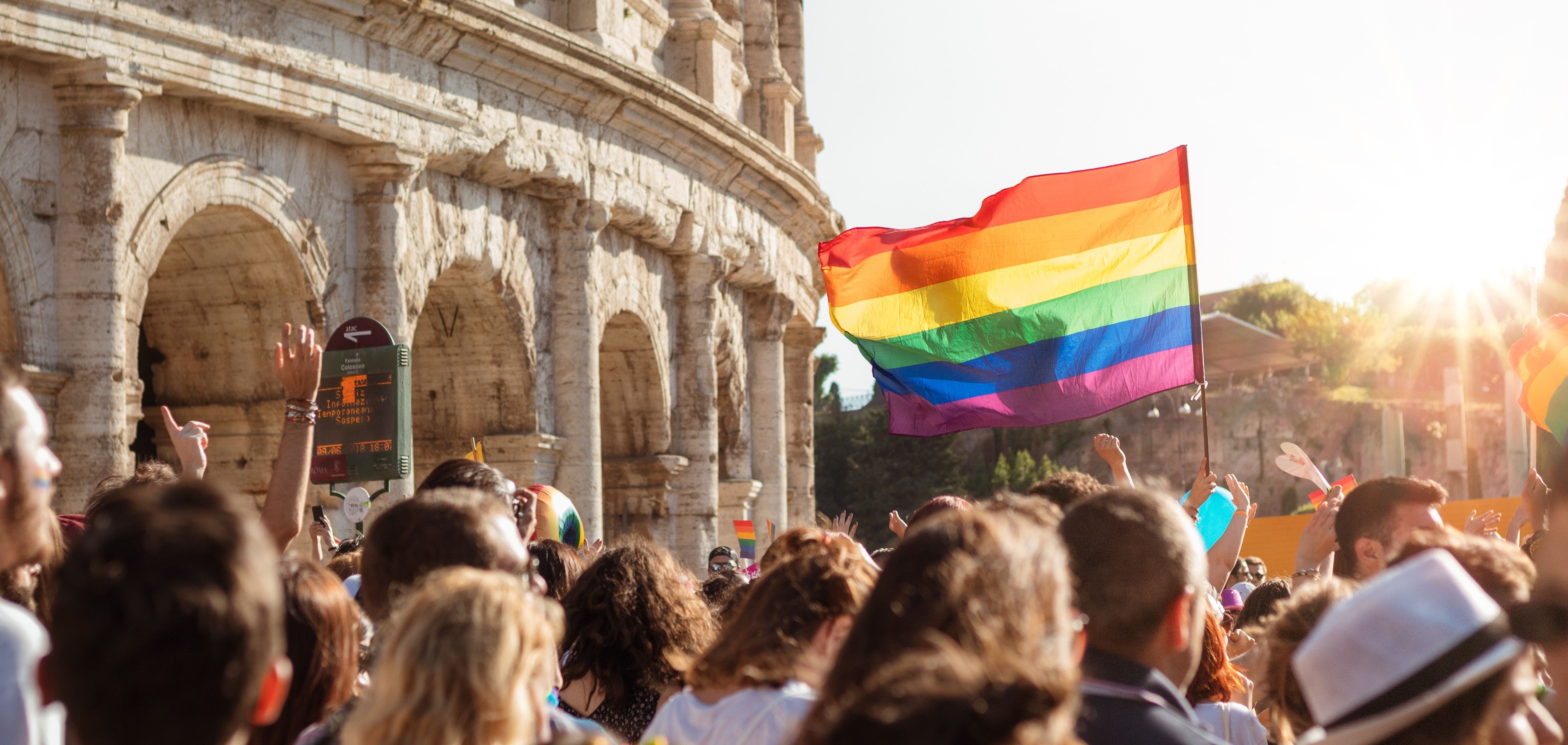Has capitalism led pride astray?
LGBT pride has its origins in radical organisation against homophobic and transphobic oppression. The first ever pride parade in 1970 was organised in commemoration of the first anniversary of Stonewall, a series of riots which took place in response to a police raid of Manhattan gay bar the Stonewall Inn.
It was a wholly non-commercial event: at a time when homosexuality was illegal in the vast majority of US states, corporations were not interested in aligning themselves with members of gender and sexual minorities, people who were widely considered to be deviant and unnatural. Almost 48 years later, we can see that there’s been a sea-change in attitudes, and the movement has veered significantly from its activist roots as a result. Today, it is big money.
It’s not difficult to see how placing such a high price on tickets is exclusionary towards many people
Across the pond here in England, not only are there pride parades all over the country attended by hundreds of thousands of people, but increasingly large programmes of accompanying events too. Furthermore, there are now a vast array of pride-themed products available. An increasing number of both high street and designer clothing brands promote pride-themed lines around this time of year, while Costa Coffee are currently selling rainbow coffee cups. The question is, is this a bad thing for LGBT people?
On the one hand, it could be said to be a positive reflection of increasingly tolerant attitudes towards us, without which pride wouldn’t be as popular as it is. The massive popularity of pride events mean that they cost a lot of money to run, and corporate sponsorship is a way of covering costs and keeping pride free, and thus more accessible to all. However, a number of corporate-sponsored events aren’t free – for example, last month’s Birmingham Pride boasted an all-star cast of performers, no doubt paid handsomely for their participation, and cost an eye-watering £45 to attend both days – a price inaccessible for many members of the LGBT community. Although the profits raised are donated to charities, and you don’t need to buy a ticket to march, it’s not difficult to see how placing such a high price on tickets is exclusionary towards many people.
to what extent is the ‘acceptance’ of LGBT people incumbent upon our participation in consumer capitalism?
In addition to excluding LGBT people with limited socioeconomic means, the commodification of marginalised identities and of radical politics that is represented by today’s events has worrying implications for left-wing LGBT activists. For example, in 2015 the London Committee would not allow supporters of LGSM (Lesbians and Gays Support the Miners, a LGBT unionist group) march at the front of the parade. They did, however, allow their corporate sponsors Starbucks and Barclays to do so. It’s worth asking, then, to what extent is the ‘acceptance’ of LGBT people incumbent upon our participation in consumer capitalism? Must we align ourselves with banks in order to make progress in tackling homophobia and transphobia?
As somebody who will need to sell my labour to survive after graduation (yay), I don’t see the incorporation of the LGBT movement into capitalism as wholly bad – put it this way, what LGBT person wouldn’t want to work for a company that is accepting of, even celebratory of their LGBT-ness – even if it’s only for the sake of expressing an ethos of ‘diversity’ to sell products and better exploit their labour?! That’s certainly an improvement upon an openly hostile workplace environment, a reality still experienced by many. Nonetheless, I do worry about the defanging of LGBT activism represented by the commercialisation of pride. The rainbow flag is increasingly used as a cynical means of making profit, and as a political bargaining chip by homophobes and transphobes, instead of a symbol of genuine pride. Donald Trump’s waving of a ‘LGBTs for Trump’ flag at a rally in 2016 exemplifies this perfectly.
discrimination against LGBT people remains a significant issue that won’t be solved by sticking rainbows on everything
Overall, although there are tangible benefits to the commercialisation of pride, the increasing conflation of belonging, acceptance, and even activism with consumer spending is harmful to the most disadvantaged people in the LGBT community. Furthermore, the growing ubiquity of symbolism in the UK and elsewhere can give the illusion that we live in some kind of queer-friendly utopia, particularly if you haven’t experienced discrimination first-hand. This certainly isn’t the case, and it’s imperative that the expansion of pink capitalism isn’t allowed to overshadow the reality that discrimination against LGBT people remains a significant issue that won’t be solved by sticking rainbows on everything.
I am by no means arguing that people shouldn’t attend pride events, or buy pride-themed products. For many LGBT people, pride is an important and fun space to connect with other members of the community, in a space that centres them, in a world that largely still centres heterosexual, cisgender people. And rainbows are pretty great. Nonetheless, it’s important to think about the implications of the increasing commercialisation of pride. Who does it really benefit the most? How can it become inclusive of LGBT people on low incomes? I think this is something that event organisers should contemplate.

Comments